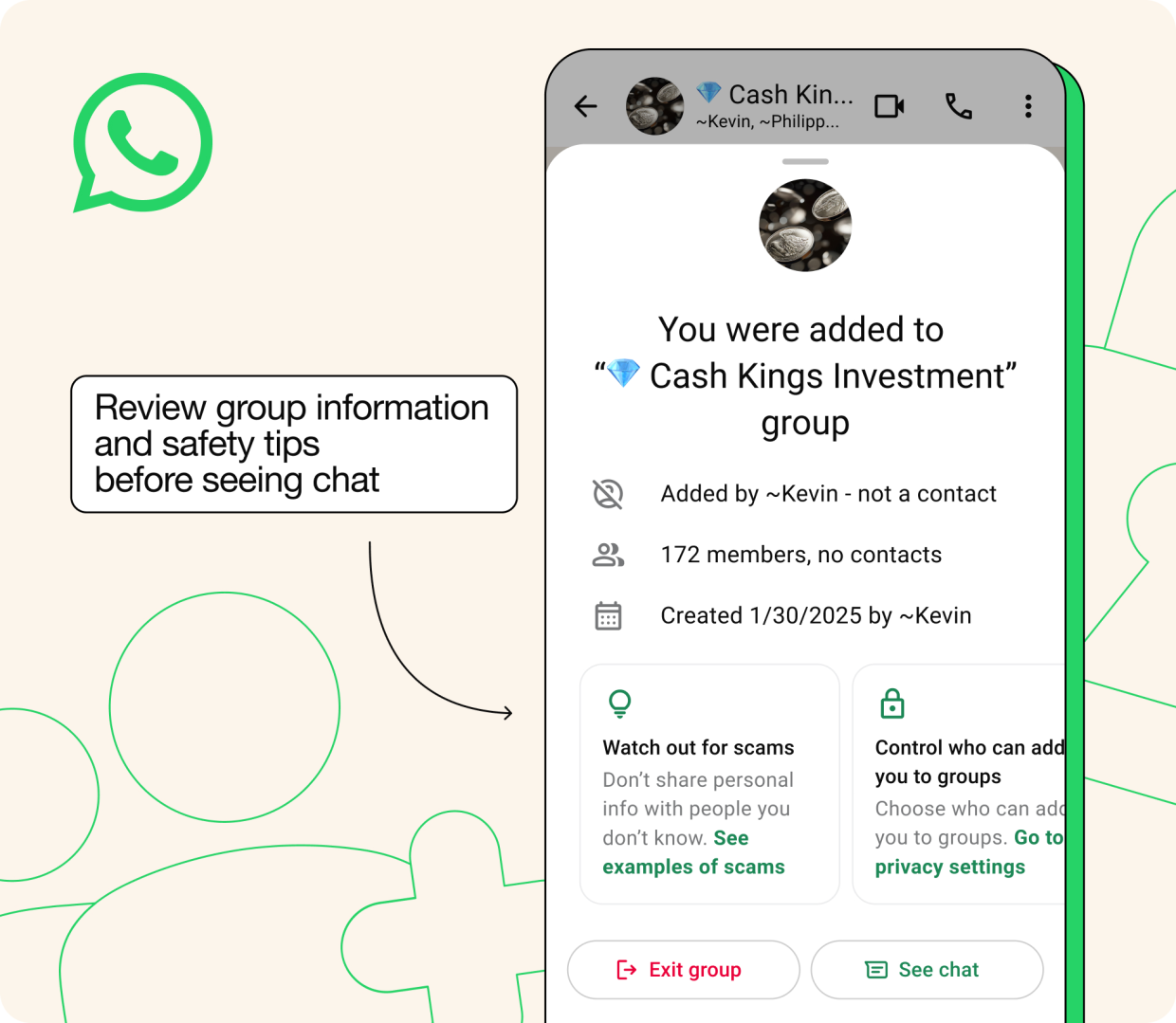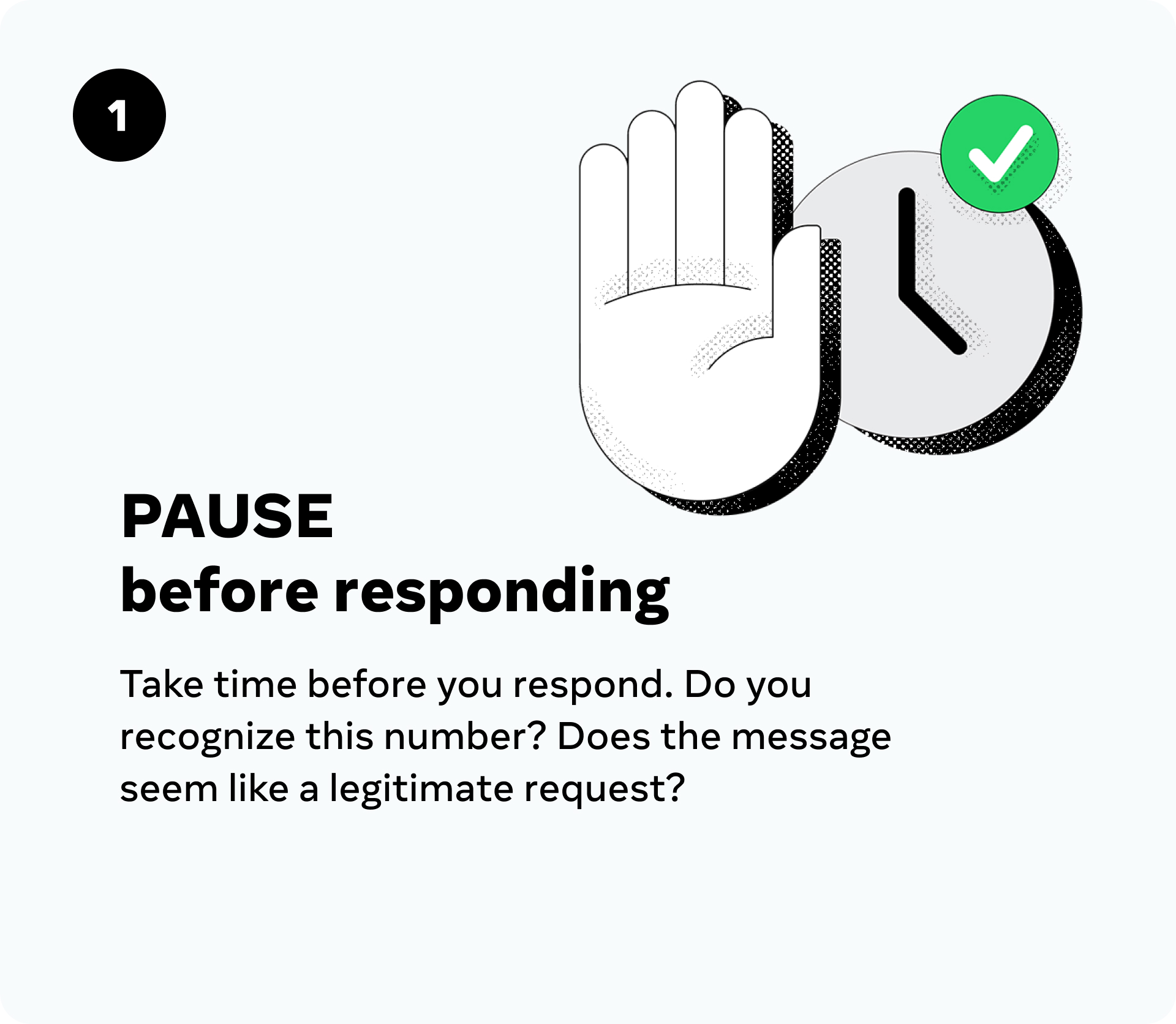
Editor
Celine Low chevron_right
With scammers getting more sophisticated every day, WhatsApp is taking precautions to protect users. The popular messaging app is rolling out a suite of new safeguards to help you easily spot and avoid potential scams, especially when dealing with strangers.
Unfamiliar Group Chats
One of the new features is a safeguard for group invites. Often, scammers will add you to a random group without your permission. Now, if someone who isn't in your contacts adds you to a group, WhatsApp will send you a notification.
This notification will act as a safety overview, providing key information about the group and some tips to stay safe. It will show you if the person who added you is one of your contacts and if any of your existing contacts are already members. From there, you can simply exit the group without ever having to look at the chat, or if you think you recognise it, you can choose to see the conversation for more context.
Until you make a choice, all notifications from the group will be muted, so you won't be bothered by a flood of messages.

Context for One-on-One Messages
When you start a conversation with someone who isn't in your contacts, WhatsApp will now give you a heads-up.
The app will show you extra context about who you're messaging, making it easier for you to decide whether that person is safe to talk to. This simple warning gives you a moment to pause and think before engaging with a potential scammer.

What WhatsApp Is Doing About Scammers
WhatsApp recently reported that it has detected and banned over 6.8 million accounts linked to scam centres.
In a recent example of a disrupted scam, WhatsApp, along with Meta and OpenAI, managed to track a criminal scam centre in Cambodia. The scammers were using a complex multi-platform approach: they used OpenAI's ChatGPT to generate the initial text message containing a link to a WhatsApp chat. F
rom there, they would quickly direct the target to Telegram, where they were given a task like liking videos on TikTok to "earn" money. The scammers would then try to build trust by showing how much the target had theoretically earned before asking them to deposit money into a crypto account for the "next task."
Stay updated with ProductNation on here, Instagram & TikTok as well.
Read more related news here:
